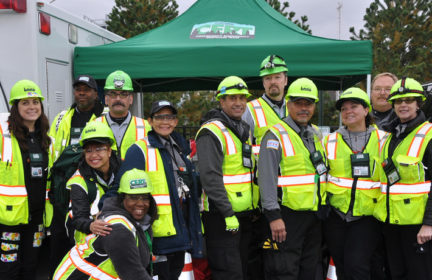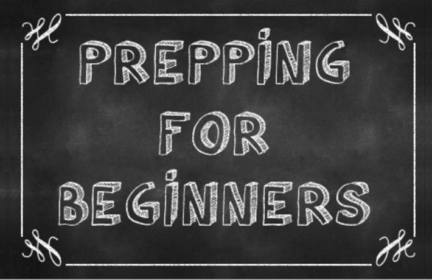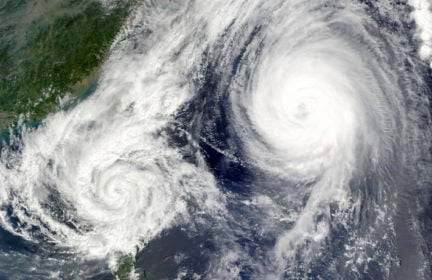How to synthesize/prioritize preparing for scenarios based on likelihood, severity, and other factors?
Some scenarios must happen, in general, more often than others. I imagine people use CPR more often than they evacuate their home and survive out of their GB/BOB. I imagine people restart their car battery more often than they use a firearm.
Does anyone know of a ranking of preparedness scenarios, ordered by how statistically likely they are to happen?
An additional level would be to factor in eventuality and severity. For example, saving enough funds for when you can no longer work for pay is important, but the “average” person has several years to work towards this. Being able to stop severe bleeding is something you may never need, but is extremely important if you do need it, and doesn’t take as much time or money to prepare for as other things.
And of course there’s the community aspect as well. If I’m built out enough to survive a multi year emergency, but all of my neighbors are food insecure week-to-week and I don’t even have their phone numbers, that seems like a bad prep.
-
Comments (15)
-
Bob - April 14, 2021
Good morning Lowell,
Yes, I know of scenerio rankings based on statistics that involve frequency. Some preparedness groups do not consider the information reliable for planning / preparedness efforts. Much is artificial or perhaps better to say “based on ‘fiat”” (stipulations). Think of the 100-year storm. It’s Aristotolean logic or what I call “fallacy”. Build another Interstate Highway road structure and railwater drainage patterns change – along with the statistical 100-year storm changing. America’s upper mid-West Emergency Managers are familiar.
Eventuality and severity are tremendous variables. Besides the scenerios, the human body deteriates as a function of aging. Escaping the home fire and driving a vehicle cannot be fully depended on as one gets older.
Do note that even with enough funds, transactions cannot occur as a matter of routine.Think of needed pharma, med supplies, food, field clothing, …
There are common denominators for private citizen preppers. The prepper must factor in “rapidly changing circumstances”. It was the same for colonial Jamestown, Siberia, Botany Bay.
The community aspect starts with the – Prepper Group – . TP.com is a functional aspect of a group. It is important (imperative ?!) to have a local group of some sort. The neighborhood watch program must be highlighted. Local governmental meetings on disaster preparedness continue to have few citizens attend. Nature abhors a vacuum and community programs with be developed and funded by the not too well experienced. The public health vaccination programs illustrate this.
It’s still the basics: food, shelter, supplies and persistence.
-
Bradical - April 14, 2021
It’s going to depend on many factors such as where you live, time of the year, and other things, but here’s a list of some common ‘disasters’ or ’emergencies’ that I think people might come across in their lifetimes. I don’t have any facts to back my hypothesis, just what my gut feels like. Feel free to add to or remove anything you want and reorder how you think it should be.
These are rated from Most likely to Least likely:
Flat tire/dead battery
Infestation (bugs, mice,…)
Appliance dies
Coronavirus
Flu
Minor injury
Traffic accident
Power outage
Winter storm
House fire
Job loss
Food shortage
Home invasion
Major injury
Major natural disaster (earthquake, forest fire, hurricane,…)
Terrorist attack
-
Bob - April 14, 2021
Good afternoon Bradical,
Just ask to discuss 2 entries on list:
– Major matural disasters (…hurricanes,..” and
– Terrorist attack
In the mid-Atlantic coastal area, hurricanes are a major peril. When is not discussed is why they are so dangerous as compared to yesteryear. This area is overbuilt and overpopulated. Concurrent with this population influx was the conscious neglect to build the necessary infrastructure (tax increases) such as more and larger roads, hospitals, … AND to add to this, there is now more non-real estate property that gets insured. They beautiful boat in the Chesapeake Bay is insured with others, besides the boat owner, indirectly subsidizing the insurance costs. This continues to the stuff in the house that’s insured.
We’ve had a few terrorist attacks in the mid-Atlantic. One was the anthrax scare. Another was the “Beltway Snipers”. People were in fear of getting gasoline, … Other events also.
-
Lowell - April 18, 2021
Thank you very much for this list bud! I’m gonna file a task for myself to think about my strategies for addressing each of these scenarios!
-
-
brekke - April 15, 2021
I think it would be hard to create a generic list, since we all live in such different areas with different risk factors. This post has some great information on how to do threat modeling: https://preparedpro.xyz/forum/thread/an-introduction-to-threat-modeling/
-
UbiqueContributor - April 15, 2021
Lowell,
Preparedness is best kept simple. This is the long game. There will always be something.
This is a subject that is easily over-complicated and that won’t make you better prepared.
If you think about it, if you are prepared for a broad range of situations and depth of situation, then you are prepared. Period. No matter what happens. It won’t matter how often something happens other than your prep rotation might be faster for those associated items.
What worked for me was to take preparedness and begin by doing as I was raised to do:
Water – access and ability to store it (we were on a hand pump well)
Food – the ability to grow, hunt, fish, harvest, preserve, and buy it, with savings to buy more.
Shelter – a affordable and safe place to live, but never more space than what I was prepared to live in or use, rented or owned, with emergency savings to stay sheltered no matter what.
Warmth – in extreme cold climate, it was winter gear and auxiliary heating (wood), gas line antifreeze to keep lines from freezing up when driving, know how to survive if stranded in cold, carry kitty litter for traction and a shovel.
First Aid – avoid injury and illness, know how to treat if no health care (I didn’t live close to health care)
From there I looked at environment. Based on where I live today, what are the risks I face by living here?
If I were still in B.C., I would include forest fires and/or earthquakes. Those don’t apply to the same degree or possibility where I live now.
In the city, I assessed and prepared for urban threats such as violence (learn how to avoid and defend), theft (fortress home and don’t attract attention), risk of vehicular accident (defensive driving) and fire (have insurance in case of catastrophic loss, keep fire extinguishers, smoke and co2 alarms, watch for wiring smells, feel wall around outlets if not sure, never diy electrical and know how to get out of home in the dark fast in case of smoke and fire).
These preparations are portable and they can be applied universally. I have added to them over time, but it is about starting with the basics and working outward from that point.
It takes time to get into the process of maintaining preps and triaging what is necessary to allot precious storage space to and what isn’t necessary.
Just pace yourself and work the basics first. The basics will cover you for a myriad of situations.
I hope this helped out Lowell.
-
Lowell - April 18, 2021
This definitely helps! Thank you so much for taking the time to write all this! I’m very early in my preparedness journey so I’m trying to figure out what makes the most sense to prioritize at this stage in my circumstances. I think I’m doing a pretty decent job right now, but wanted to check to see if there were any existing prioritization methods I could lean on to avoid reinventing the wheel. Agreed that how much space I have will definitely becoming a clarifying factor!
-
Bradical - April 18, 2021
If you ever need advice on any particular topic, let the nice people on the forums here know. I’ve seen some great guys on here go above and beyond helping each other out. Pretty neat community. You’ll be able to learn from other’s mistakes, which is nice.
-
-
Bob - April 16, 2021
https://www.ncdc.noaa.gov/billions/
Good morning Lowell,
For a start in re the study of scenarios … “likelihood, severity and other factors”, above link should begin the journey.
Do remember, much is based on “fiat” – eg, what is determined to be the value of something, what is a hurricane and what is not a hurricane.
-
Bob - April 16, 2021
An addendum;
https://www.insurancejournal.com/news/international/2021/04/16/610191.htm
This link is somewhat technical but worth glancing at.
Major changes going on. As recently as 2021 … Now ! … note the change by UK regulators on “forward looking risk management” re human risk.
Don’t have to know this stuff; just the familiarity works well.
This is why I say the variables of the perils becomming disasters are so dynamic.
-
-
underprepraccoon - April 17, 2021
Howdy, Lowell.
I think that figuring out possible situations is probably one of the critical things for prepping.
I’ve found a lot of information about it comes from experience. Recently I was without hot water and it was an interesting experience. My mother who had gone through that would heat water on the stove and we both learned to wash hands in cold water. We also learned that she needs a real shower at least once a week or she just isn’t able to deal with things.
So researching where you frequent and live would likely give you a starting point to start to figure out what to specifically prep for. Keep in mind that most preps can, do, and should be multi use.
You could ask people that have lived in the region, for example some regions get huge amounts of snow during winters which are then contrasted with fires in summer.
Weather seems the most likely to mess things up from outages to bugging out. Probably find out what extreme weather you’re vulnerable to and what it has caused in the past and what could propagate from that.
Then everything else would build off that, people related things could take out parts of what weather could, like someone hitting a power line vs snow knocking it out.
Then it goes into things like people not keeping a pandemic in check or someone breaking into the house, stuff like that.
There’s a core of skills and basic equipment that covers most things which would be enough. There are specific items or skills that you might need in certain situations, but you need to figure out if there’s a low possibility of actually ending up in that situation. Example would be needing a canoe in the desert with little surface water, unless you’re planning to play in the drainage canals often.
-
Lowell - April 17, 2021
Definitely a good point! I figure some eventual goal like going on an overnight backpack every other month could be solid for ensuring I’m prepared for different weather scenarios in my area.
For now, I’m gonna try and just go on a hike! Haven’t done that in a while 😭
-
JB - April 17, 2021
I like that idea of looking at past regional extreme weather situations.
underprepraccoon how did you and your mother deal with the bathing situation without hot water? Did you heat water on the stove and then do a sponge bath?
-
underprepraccoon - April 18, 2021
We have a stock of baby wipes which are really good for critical area cleaning with minimal water.
She likes to wash up in the mornings so she would heat water on the stove or in an electric kettle and pour some into a hot water/coffee carafe, those like two walled containers that keep liquids hot or cold efficiently, then add a bit of cold water from tap to cool it from boiling down to something managable for wetting and washing face with a towel. I think she also used the basin plug in the bathroom.
I have an extremely high tolerance for not washing up due to funny brain stuff, but I keep my hands very clean.
What we figure we could also do based on reading during and after the fact, is also taking bucket showers, and investing in a camp shower that could double as a gravity feed water filtration system.
The bucket shower or bath is basically filling up a larger bucket or container with hot and cool water, then using a smaller bucket or something with a spout, and sitting or standing and pouring it over yourself after soaping up. I read that the left over water is often used to do laundry.
The camp shower works with gravity and I figure it could be clipped up next to the standing shower we have and just clipped into an I bolt and run it over the door. Then it could double duty with an inline filter to filter any dirty water if needed.
-
JB - April 18, 2021
A camp shower seems like a smart investment.
-
-
- News for the week of 2025-05-05 - 4 days ago
- News for the week of 2025-04-28 - 2 weeks ago
- News for the Week 2025-4-21 - 3 weeks ago
- News for the Week 2025-4-14 - 3 weeks ago
- News for the Week 2025-4-7 - 1 month ago
This forum is heavily moderated to keep things valuable to as many people as possible. Full community policies are here. The basics:
- 1. Be nice to each other.
- 2. Stay focused on prepping.
- 3. Avoid politics, religion, and other arguments.
- 4. No unfounded conspiracies, fake news, etc.
- 5. Debate ideas, not people.


